Spotlight: Maev Beaty
Maev Beaty is addicted to people.
The critically acclaimed actor, writer, and creator has enjoyed a rich and fulfilling career in theatre over the last 20-plus years, giving numerous standout performances in both new and classic roles, winning multiple awards, breaking into the film and television industry, and earning several co-writing credits.
But it is her deep, unrelenting interest in people, and her commitment to fostering relationships, that drives her.
“I really love people so much,” Beaty told me over Zoom, explaining that she experiences theatre as a mutual exchange of connection with an audience. “What could be better than having a conversation with as many of them as possible and trying to find something that we share?”
Beaty currently stars as Beatrice in Much Ado About Nothing at the Stratford Festival, a role at the top of her bucket list since she first saw Kenneth Branagh’s film adaptation almost exactly 30 years ago and then read the play. “Right away I was like, ‘this character is the character I want to play before I die,’” she recalled.
She was originally supposed to play Beatrice in 2020, a plan foiled by the pandemic. But getting to perform in the play now, with a team for which she “cares so deeply,” has been an experience worth waiting for. The production also features original text by Erin Shields, one of Beaty’s longtime collaborators, who has added a feminist lens to some of the play’s more outdated parts.
“So many of her core values are expressed in this part: her feminism, her love for the theatre, her belief in language, her belief in people,” Chris Abraham, director of Much Ado About Nothing and artistic director of Crow’s Theatre in Toronto, told me over the phone. “You really feel it every day working with her.”
So many of Maev’s core values are expressed in [Beatrice]: her feminism, her love for the theatre, her belief in language, her belief in people.
Chris Abraham
Though she carries quite a bit of weight on her shoulders as the female lead in a text-heavy Shakespeare play, Beaty is highly concerned with the wellbeing of her castmates. On the first day of rehearsal, Abraham told me, Beaty started a ramen delivery thread to make sure everyone in the cast was stocked with the highly sought-after, fortifying instant noodles.
Beaty consistently brings her generosity and passion to work with her. But her greatest superpower, according to Abraham, is her emotional intelligence. Her understanding of her own feelings, those of her colleagues, and those of the audience helps to inform each of the choices she makes as an actor – she cares deeply about holding on to what is timeless about a classic work while also bridging the gap for modern audiences.
“She’s also just very, very funny,” he added. “There are some actors for whom the delight of being funny just fills up every part of what they do, and Maev is one of those actors.”
Beaty comes from a family of storytellers and artists, and she was always deeply interested in people and their lives. As a child growing up in the Thousand Islands region of Ontario, she recalls looking for stories everywhere she went: she’d tell her family to be quiet whenever they were in a restaurant so she could listen to the conversations around her and reenact them on the car ride home.
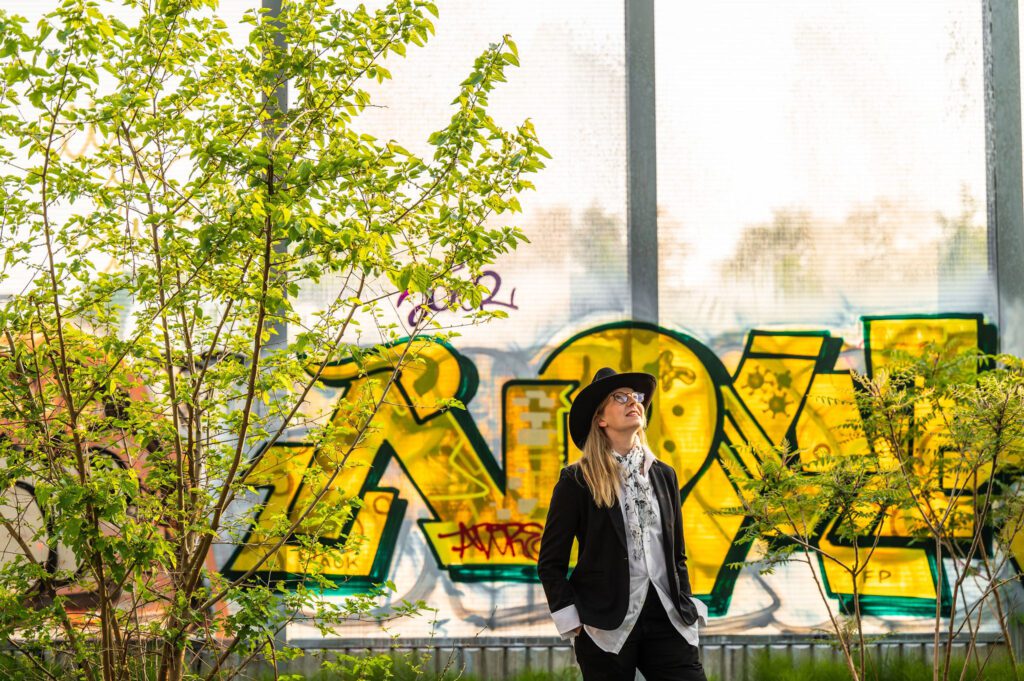
Pursuing a life in the arts wasn’t something she discovered she wanted so much as “it was part of the fabric of how I understood how to be alive in the world,” she told me. But it was a moment of spontaneous laughter and applause during her 11th-grade production of Twelfth Night that solidified her desire for a life spent on the stage.
“I want this forever because of the unplanned, spontaneous, shared human experience,” she thought in that moment. “That’s the dragon to chase, I think.”
I want this forever because of the unplanned, spontaneous, shared human experience. That’s the dragon to chase, I think.
Maev Beaty
And chase it she has. Beaty spent her adolescence participating in productions at her high school in Kingston before graduating from the drama program at the University of Toronto in 1999. She spent her 20s supporting herself as a server in Toronto while making and seeing as many shows as she possibly could. In one year, thanks to youth discounts, she recalls seeing 91 shows.
“I learned so much from that because I learned who turned me on and who blew my mind,” she said. “I learned what I like and what I don’t like, what I believed in and what I didn’t believe, and I also just met so many people.”
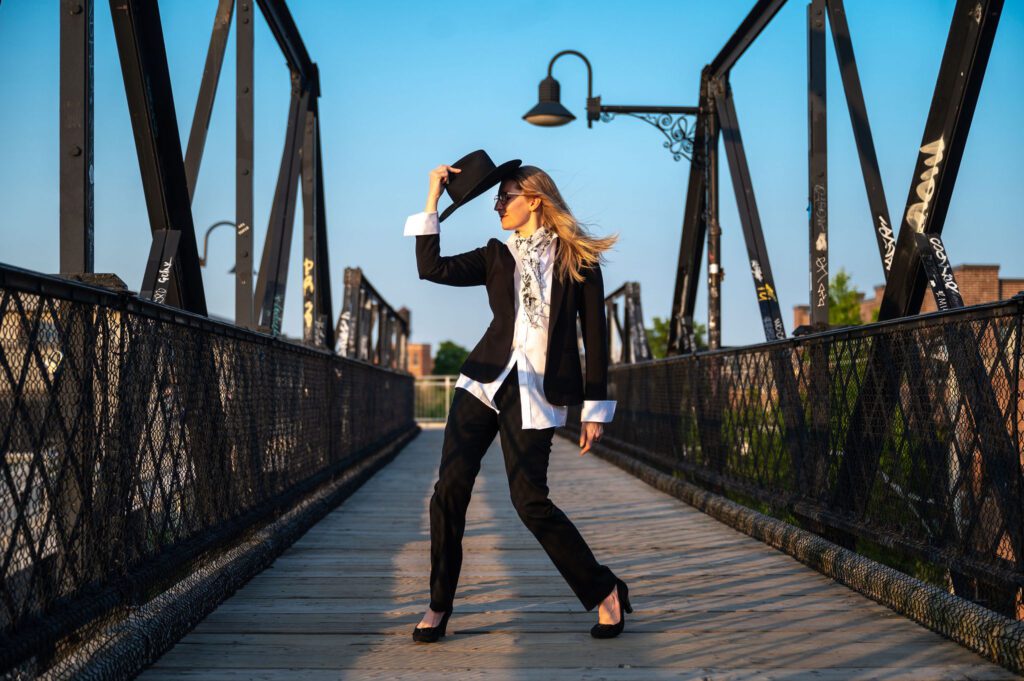
Meeting like-minded creatives, and “making stuff” with them, has been one of the greatest joys of Beaty’s career thus far, she says. These relationships have not been transactional, but genuine, intimate friendships, both in the theatre and outside of it. And many of these relationships have stood the test of time — she even married one of those fellow former indie theatre kids. Beaty and director Alan Dilworth, with whom she has collaborated on plays including The Last Wife and Great Fire, have been married for nearly 20 years and share a nine-year-old daughter.
Beaty has also long served as a muse for friend and writer Hannah Moscovitch, the Governor General Award-winning playwright with whom she has created two memorable, boundary-pushing texts. The first was Bunny, which Beaty describes as a show “about women who like to have sex and who also discover the crucial life-giving force of female friendship.” The second was Secret Life of a Mother, in which Moscovitch and Beaty told the honest stories of their pregnancies, miscarriages, and early motherhood.
“When Maev performs, you want to watch her,” Moscovitch told me over the phone from Prague, where she’s working on season two of Interview with the Vampire. “She holds you to her, and so almost anything she does becomes beautiful and watchable.”
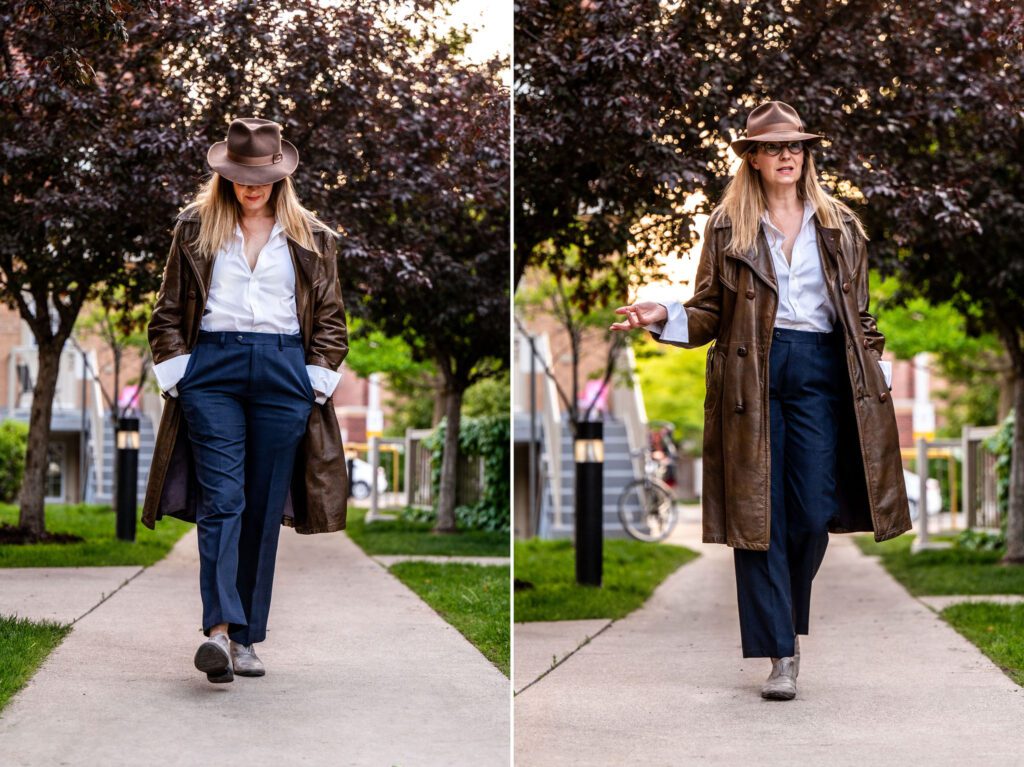
To continue their pattern of creating honest pieces of art about the different stages of womanhood, Beaty said they just might have to do a show about menopause next. And later, maybe a show about death. Beaty has been thinking about death a lot lately, especially in light of the recent deaths of director Daniel Brooks and actress Pat Hamilton — two artists with whom she worked quite closely and adored — as well as a few losses in her personal life.
“Death has got me thinking so much about life,” she said. “I can’t think of anything more live than theatre, and part of the liveness of it is because it is shared.”
So while she can officially cross off the top role on her bucket list with Beatrice, Beaty is hungry to keep collaborating with “brilliant different people bringing their differentness,” whether that’s with Dilworth, Moscovitch, Shields, Abraham, or any of the other creative minds she considers herself lucky to have been able to work with. She wants to work with new people, too, especially those with different perspectives and life experiences. Beaty believes strongly in the political side of theatre and its ability to change hearts and minds, especially at a time when so many human rights issues require our close attention, and she intends to keep using the art form to say something important.
“I’m just a student of what it means to be human,” she said. “And I get to experience the true range of that by all these artists that I’ve collaborated with over the decades.”
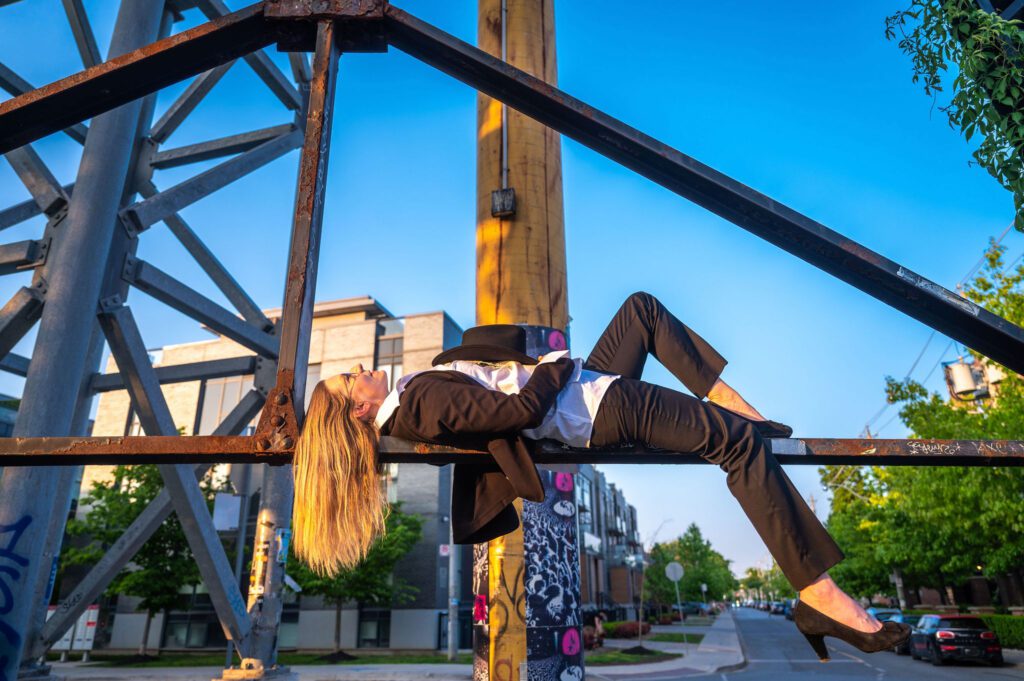
A strong belief in the importance of community and collaboration is something Beaty wants to help foster within the next generation, both with her own child and other young artists. She is a co-founder of Got Your Back, a network for Canadian artists at various career stages to connect, seek advice, and help one another uphold standards within the theatre industry.
She’s noticed a palpable sense of fear and anxiety among young people following the isolation of the past few years, which she sees as “barriers to self-expression,” and she’s determined to figure out how to help. Whether that’s through teaching, directing or even opening her own theatre school with Dilworth one day, Beaty is intent on giving back in some capacity and instilling her love of “the hairless monkeys and stardust creatures that we are ” in young people.
“I would love to find ways to bring people together to create and risk things and find community,” she said. “Because it takes courage and community to do this job.”
She herself is still learning, too. She’s learning how to be present in every moment and to feel her aliveness, even and especially when she’s on stage. At the advice of two of her mentors — Stephen Ouimette and the late Gina Wilkinson — she’s learning how to focus less on the good student inside of her that wants to do right by the playwright and the director’s vision, and to just experience each moment instead.
“I’ve really realized that those minutes that I spend on stage are minutes of my life,” she told me. “We’re not up there to present good, clean work — we’re up there to try and catch some truth for the listener that is shared in real time. You can’t do that if you’re just presenting your good homework; you have to live.”
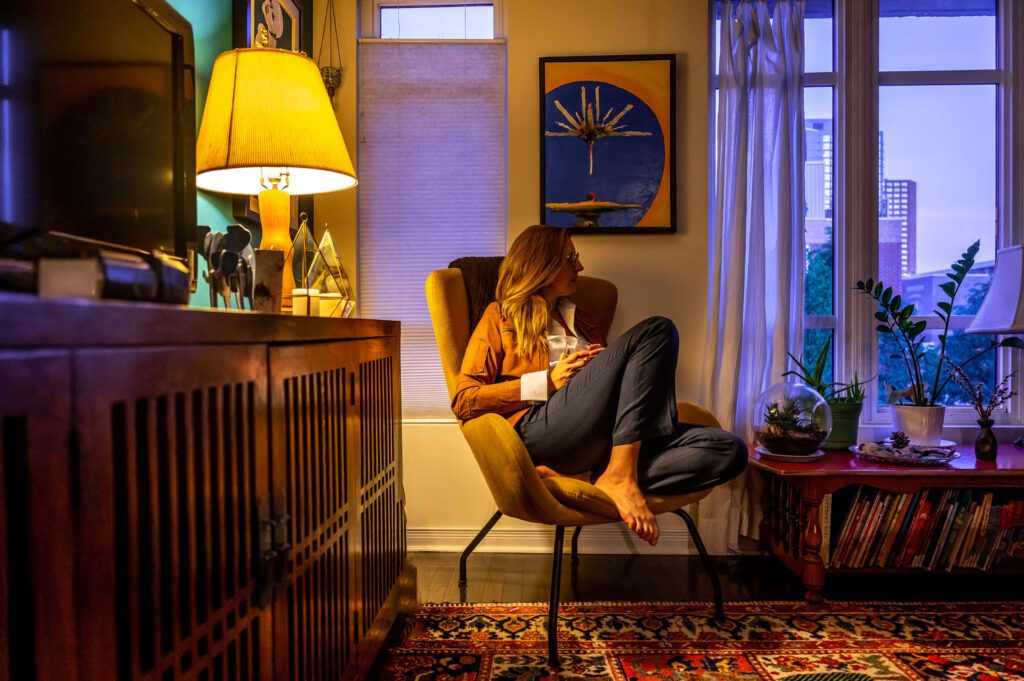

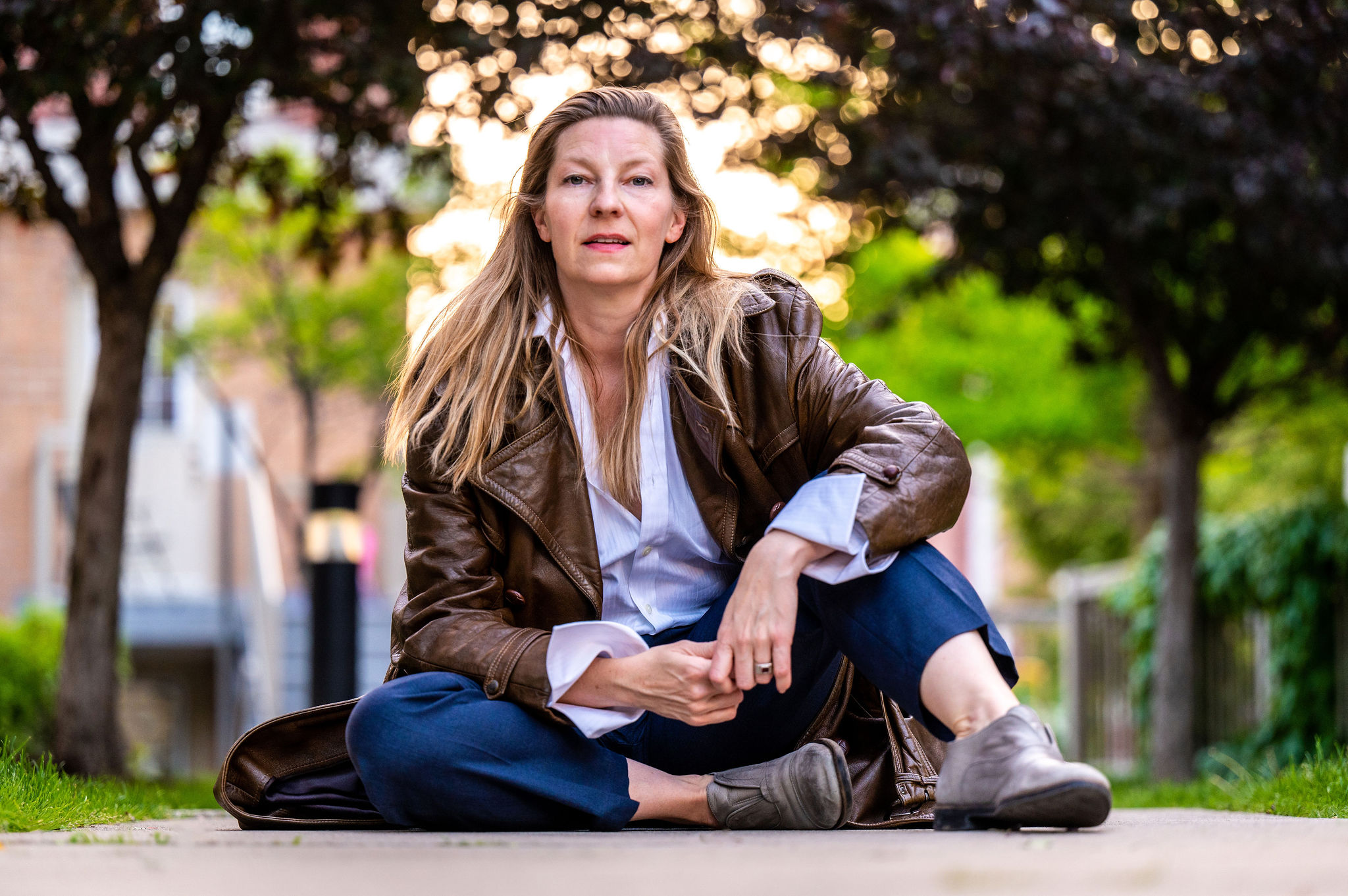
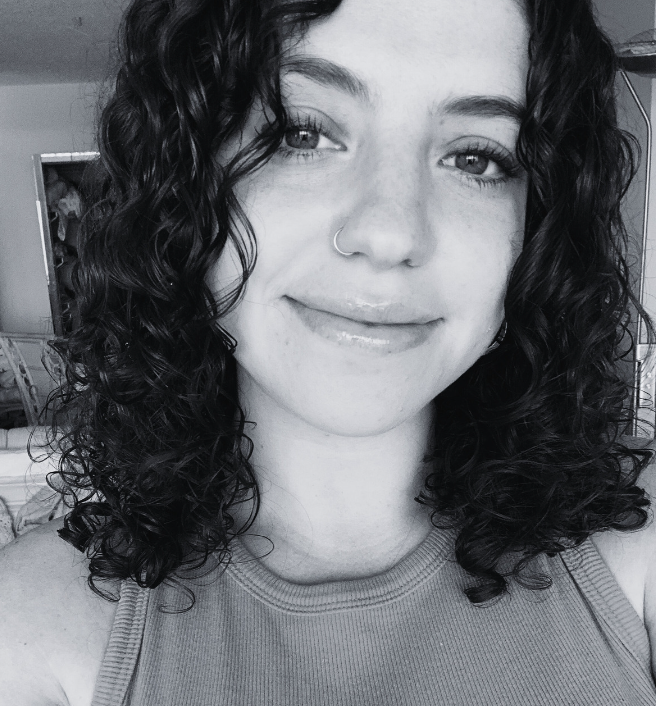
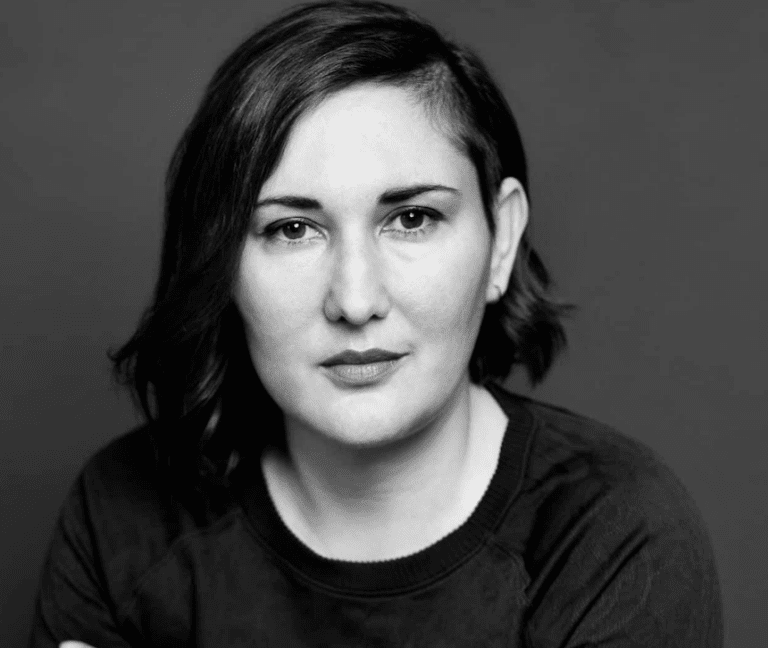




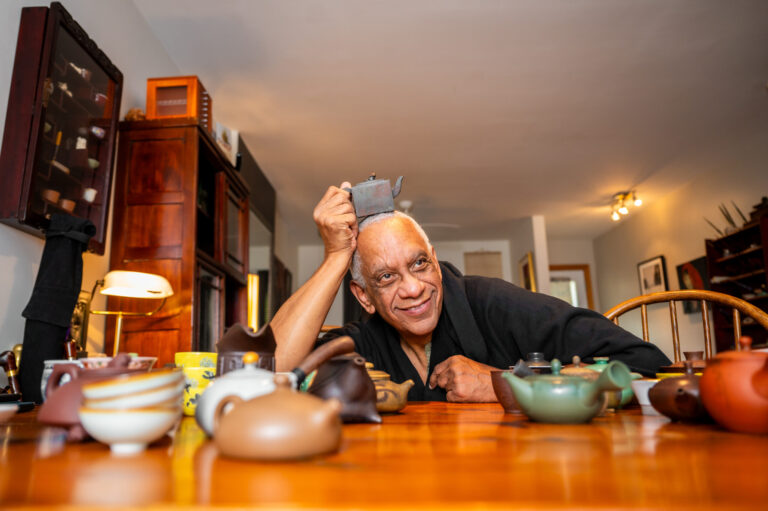
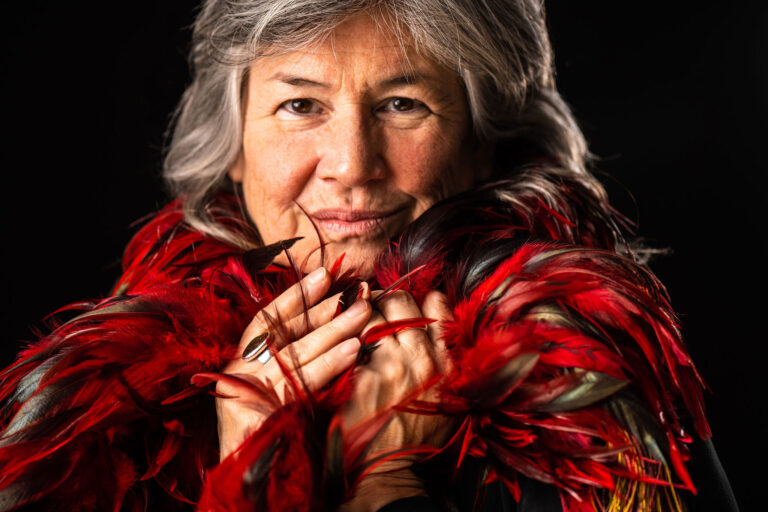
Comments